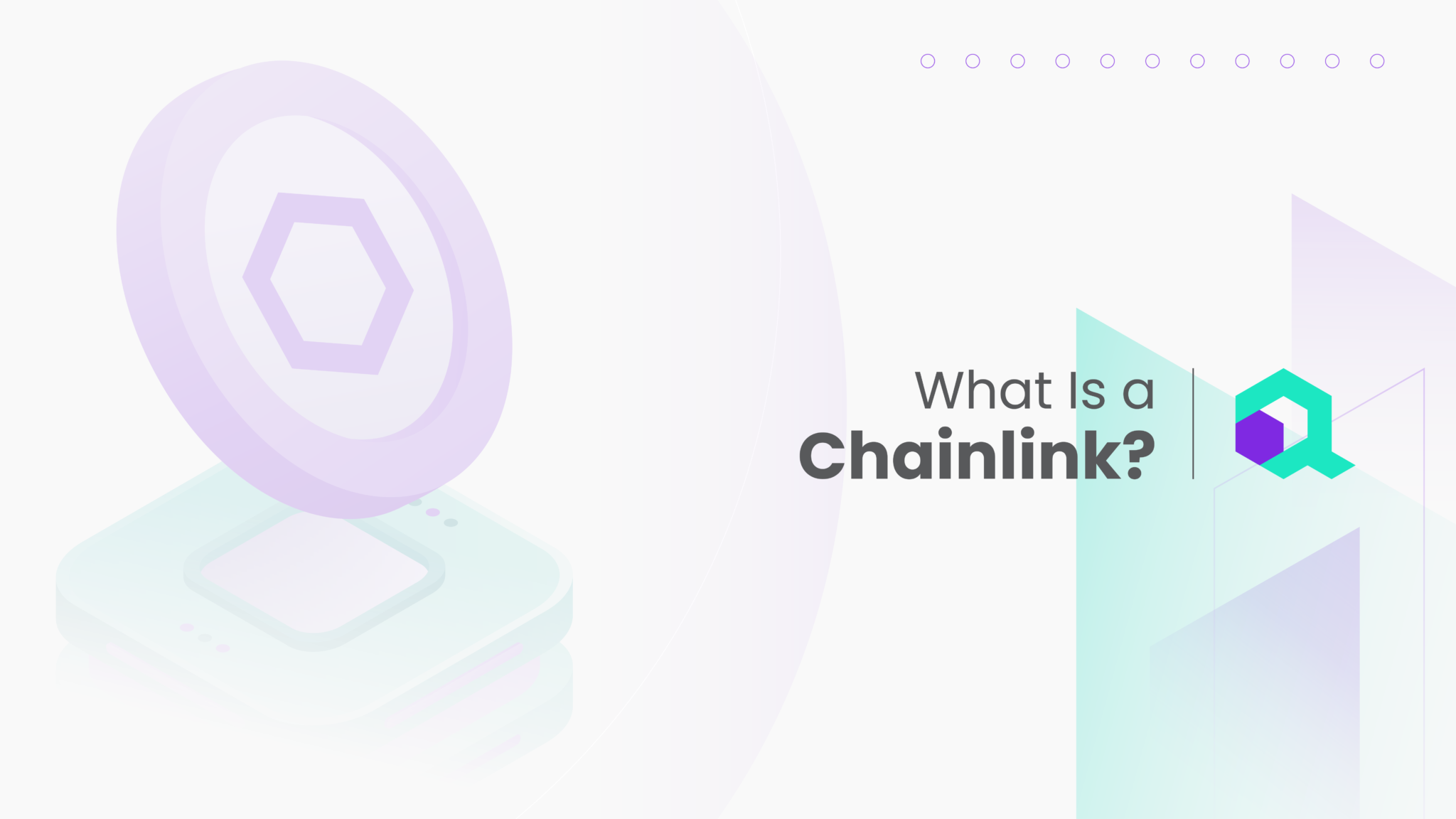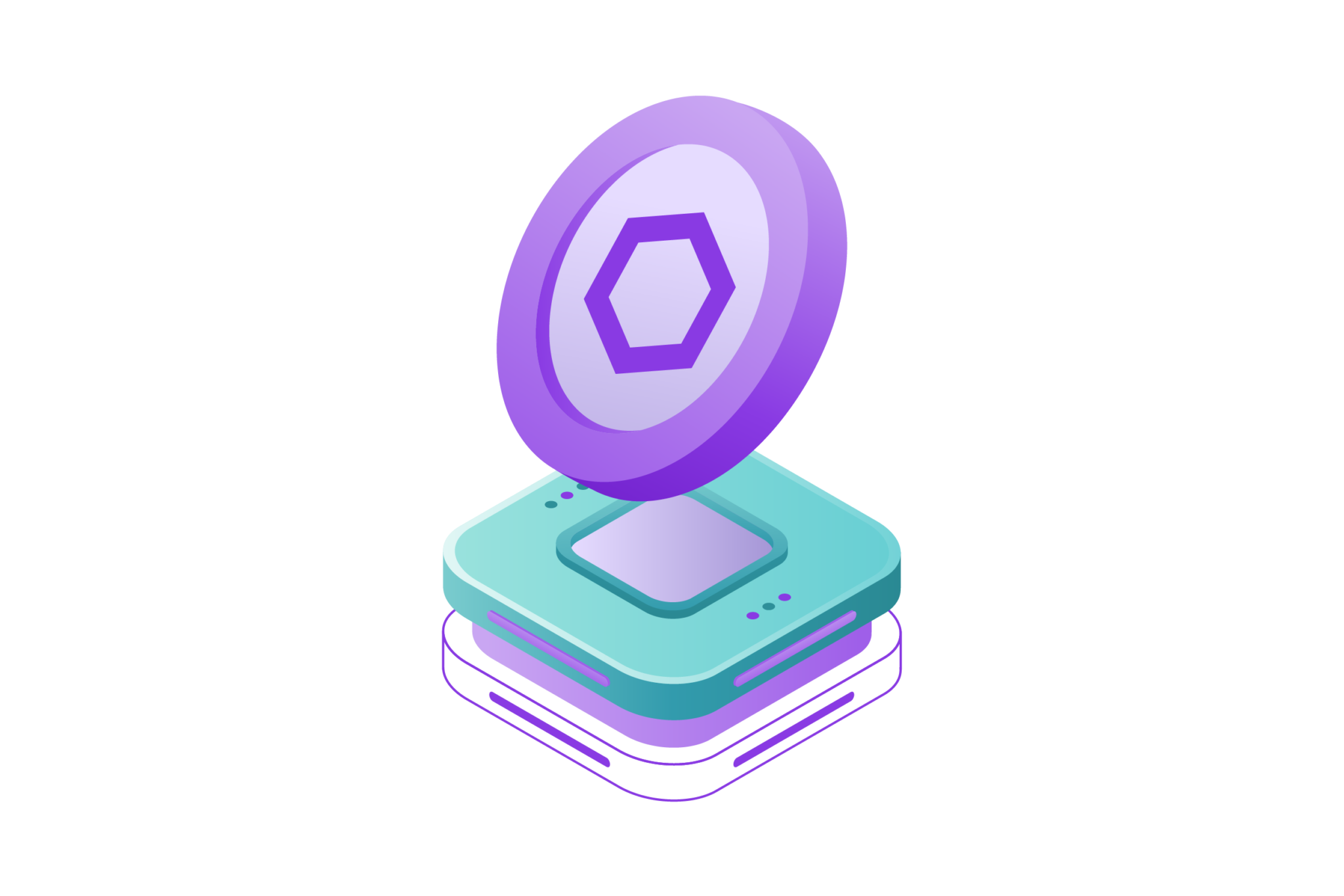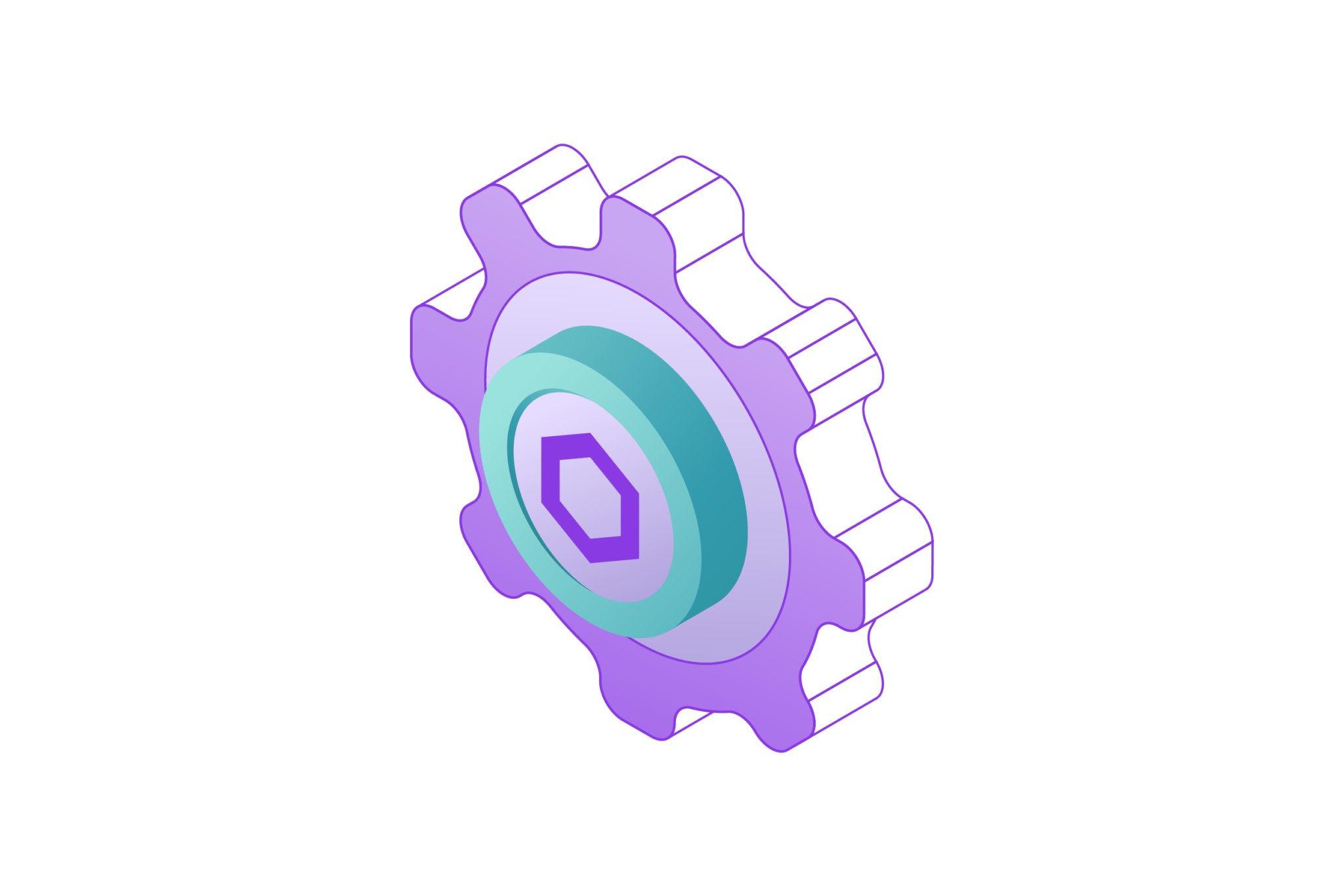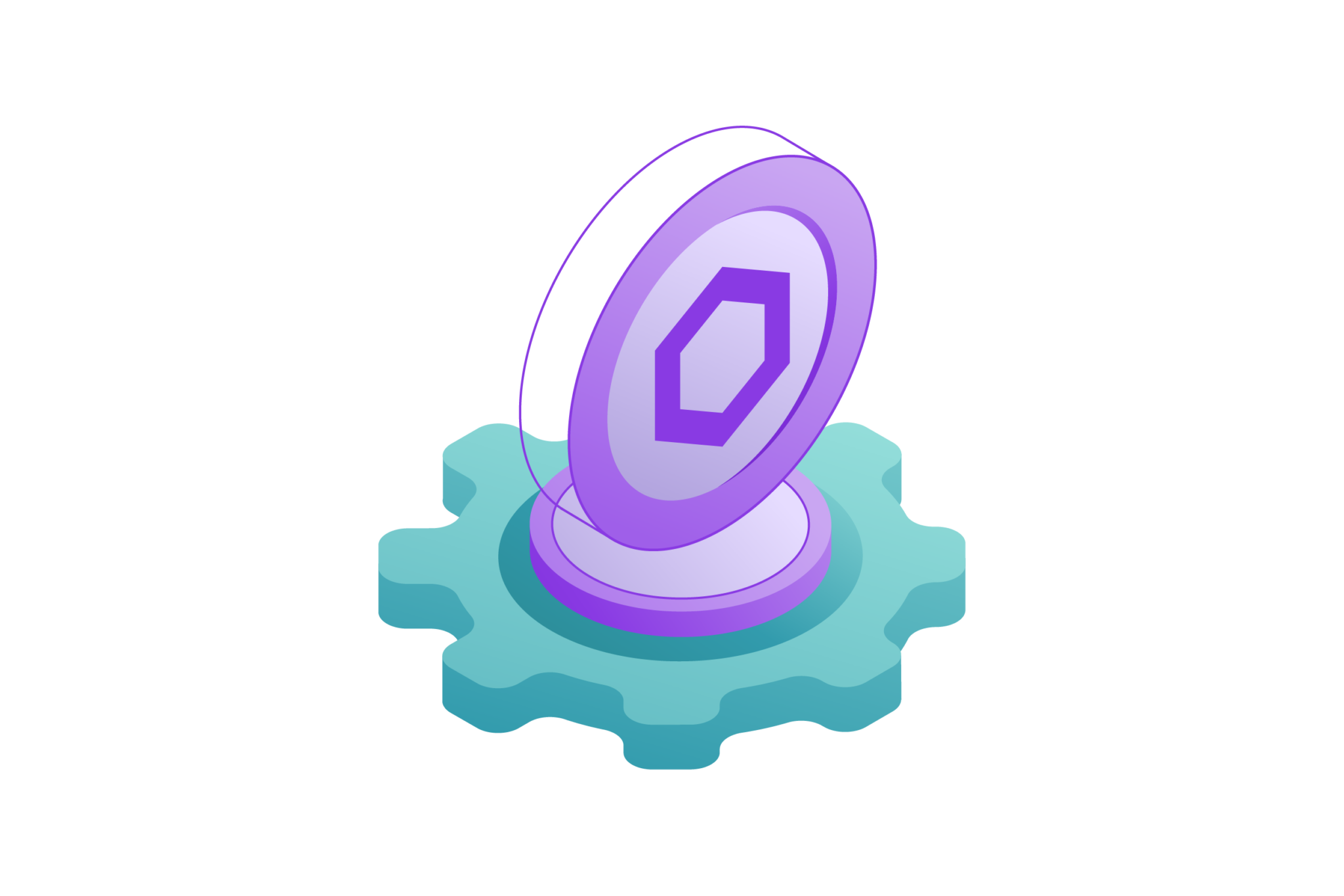
Blockchain technology has revolutionized how we think about digital transactions and smart contracts. However, for a long time, these smart contracts were isolated from the real world, unable to interact with external data or events. That’s where Chainlink steps in, a vital component in the blockchain ecosystem designed to bridge this gap. This article explores the fundamentals of Chainlink, providing a clear understanding of what it is and how it functions within the broader context of blockchain technology.
Chainlink is a decentralized oracle network that aims to connect smart contracts with data from the real world. Oracles serve as data feeds that provide smart contracts with external information, which is crucial for the execution of contracts under specific conditions. By ensuring that this information is reliable and secure, Chainlink plays a pivotal role in the functionality and expansion of smart contracts.
Understanding Chainlink’s mechanism and its importance requires a deep dive into its components, how it operates, and its impact on the blockchain landscape. This article aims to demystify Chainlink for enthusiasts, developers, and anyone interested in the future of blockchain technology, highlighting its contributions and potential in driving innovation.
What Is Chainlink?

Chainlink is a groundbreaking technology that has emerged as a cornerstone in the blockchain ecosystem. At its core, Chainlink is a decentralized oracle network. But to truly understand its significance, it’s essential to first grasp what an oracle is within the context of blockchain and smart contracts. Oracles are third-party services that provide smart contracts with external information. They act as bridges between blockchains and the outside world. In the realm of blockchain, where data is meticulously validated and stored in a decentralized manner, Chainlink introduces the capability to securely and reliably fetch external data to trigger smart contract executions based on real-world events and information.
This decentralized oracle network is designed to solve a critical problem in the blockchain sector: the smart contract connectivity issue. While smart contracts can execute agreements automatically without intermediaries, their operational scope is limited to the data available on their blockchain. They lack the ability to access or interact with external data, making many potential applications impractical. Chainlink addresses this by allowing smart contracts to securely interact with external data feeds, APIs, and even traditional banking systems. This connectivity not only expands the functionality and applicability of smart contracts but also enhances their reliability and the security of the data they rely on.
Chainlink operates through a network of nodes that collectively validate and relay data from external sources to smart contracts across various blockchains. Each node is incentivized to provide accurate data through a system of rewards and penalties, ensuring the integrity of the data fed into the smart contracts. This mechanism introduces a layer of trust and reliability unheard of in traditional centralized oracle services, where a single point of failure could compromise the entire system.
The innovation doesn’t stop at data delivery. Chainlink also provides solutions for data confidentiality, enabling private smart contracts, and offers features like Chainlink VRF (Verifiable Random Function), which supplies verifiable randomness for smart contracts. This breadth of capabilities positions Chainlink as a pivotal player in the blockchain ecosystem, empowering developers to create more complex, real-world connected applications on blockchain platforms.
Also Read: The Most Anticipated Airdrop of March 2024
Chainlink’s significance extends beyond its technical achievements; it represents a vital step towards realizing the full potential of blockchain technology. By enabling smart contracts to securely and reliably interact with external data and systems, Chainlink is paving the way for a new era of blockchain applications. These applications range from decentralized finance (DeFi) and insurance to gaming and beyond, each benefiting from the ability to interact with the real world in a trustworthy manner.
As blockchain technology continues to evolve and find new applications, the role of Chainlink and decentralized oracle networks will undoubtedly grow. Chainlink is not just a piece of technology; it’s an enabler of possibilities, a bridge between the isolated islands of blockchain and the vast, data-rich continents of the external world. Its ongoing development and adoption are crucial for the future of decentralized applications, making it a key technology to watch in the blockchain space.
How Chainlink Bridges the Gap Between Blockchains and Real-World Data

Blockchain technology has revolutionized the way we think about digital transactions, providing a secure, transparent, and decentralized platform for exchanging value and information. However, one of the inherent limitations of blockchain is its closed-off nature; by design, blockchains are isolated systems that don’t naturally interact with external data or systems. This isolation poses a significant challenge for smart contracts, which are self-executing contracts with the terms of the agreement between buyer and seller being directly written into lines of code. For smart contracts to realize their full potential, they need to be able to securely and reliably interact with real-world data and external systems. This is where Chainlink, a decentralized oracle network, comes into play.
Chainlink acts as a bridge between blockchains and the outside world. It provides a reliable solution to the “oracle problem,” which is the challenge of safely bringing real-world data onto the blockchain in a way that doesn’t compromise its security or integrity. Here’s how Chainlink addresses this challenge:
- Decentralized Network of Oracles: Chainlink is built on a network of decentralized node operators, ensuring that data is sourced from multiple independent sources. This decentralization mitigates the risk of data manipulation or single points of failure, which are critical concerns when relying on external data for executing smart contracts.
- Secure Data Feeds: Chainlink provides secure and tamper-proof data feeds that smart contracts can use to execute their terms. These feeds deliver real-time data from external sources, such as financial market prices, weather conditions, or even the outcome of a sporting event, directly to the blockchain in a secure and reliable manner.
- Flexibility and Compatibility: Chainlink is designed to be blockchain-agnostic, meaning it can provide data to smart contracts on any blockchain platform. This flexibility opens up a world of possibilities for developers building smart contracts across different blockchain ecosystems.
- Reputation System: Chainlink incorporates a reputation system for its oracle providers, which incentivizes accurate and reliable data reporting. Oracle nodes are rewarded for providing accurate data and penalized for any inaccuracies, ensuring a high level of data integrity and reliability.
- Crypto-Economic Security: Chainlink leverages crypto-economic incentives to ensure the security and reliability of its network. Oracle providers must stake LINK, Chainlink’s native token, as collateral, which can be confiscated in the event of malicious activity or data inaccuracies. This system of incentives and penalties ensures that oracle providers have skin in the game, promoting honest and reliable data provisioning.
By addressing the oracle problem, Chainlink opens up a world of possibilities for blockchain applications. It enables smart contracts to interact with the real world in a secure and reliable manner, expanding their utility beyond the blockchain. This capability is crucial for many use cases, from decentralized finance (DeFi) applications that require accurate price feeds to insurance contracts that depend on real-world data to determine payouts. Chainlink’s innovative approach to bridging the gap between blockchains and real-world data is a key enabler for the next generation of blockchain applications, promising to unlock new levels of functionality and efficiency in decentralized ecosystems.
The Technical Backbone of Chainlink

Chainlink is a decentralized oracle network that plays a crucial role in bridging the gap between blockchain smart contracts and real-world data. It’s designed to provide secure and reliable data to smart contracts on various blockchain platforms, enabling them to interact with external data feeds, APIs, and payment systems. The technical infrastructure of Chainlink is built to ensure the integrity, reliability, and security of data being fed into smart contracts, which is vital for the execution of contract terms based on real-world events and data.
At the core of Chainlink’s architecture are decentralized oracles that fetch, validate, and deliver data from off-chain sources to on-chain smart contracts. These oracles operate within a network that employs robust consensus mechanisms to verify the accuracy and reliability of data before it’s used in smart contract execution. This decentralized approach mitigates the risks associated with relying on a single point of failure, which is a common issue with centralized data providers.
Chainlink uses a combination of on-chain and off-chain components to function efficiently. The on-chain component consists of smart contracts deployed on blockchain networks. These contracts process data requests from other smart contracts, select oracles to fulfill these requests, aggregate responses from chosen oracles, and reconcile any discrepancies in the data provided. The off-chain component, on the other hand, comprises oracle nodes that connect to external data sources, fetch the requested data, and transmit it back to the blockchain.
To incentivize honest and accurate data provision, Chainlink employs a reputation system and LINK tokens. Oracles are rewarded with LINK tokens for providing accurate data, and they can be penalized by losing their stakes in the network for dishonest or inaccurate data provision. This economic model ensures that oracles have a vested interest in maintaining the integrity of the data they provide.
Security is a paramount concern for Chainlink, given the financial and operational implications of the data it handles. The network employs several layers of security measures, including cryptographic techniques, secure hardware, and trusted execution environments, to protect against tampering, manipulation, and unauthorized access to data.
Furthermore, Chainlink is designed to be blockchain-agnostic, meaning it can provide data to smart contracts across different blockchain platforms. This interoperability is key to enabling a wide range of use cases, from DeFi (decentralized finance) and insurance to gaming and supply chain management.
Chainlink’s technical backbone is built on a decentralized network of oracles, a secure and robust architecture, and a strong economic incentive model. These features collectively ensure the reliable and secure transmission of external data to blockchain smart contracts, empowering them to execute based on accurate and timely real-world information.
Chainlink’s Role in Smart Contracts and Decentralized Finance (DeFi)
Chainlink plays a crucial role in the ecosystem of smart contracts and decentralized finance (DeFi) by serving as a bridge between blockchain networks and real-world data. It addresses one of the key limitations of smart contracts: their inability to access or interact with external data sources directly. Smart contracts, which are self-executing contracts with the terms of the agreement between buyer and seller being directly written into lines of code, rely on the information available on the blockchain. However, for many applications, the need for reliable, real-time data from the outside world is essential—for example, market prices, weather conditions, or other external events that could trigger the execution of a contract.
Chainlink is a decentralized oracle network that provides a solution to this problem. Oracles are third-party services that fetch data from outside a blockchain to within it. Chainlink allows smart contracts on various blockchain platforms to securely and reliably access off-chain data feeds, web APIs, and traditional bank payment systems. This capability is critical for many DeFi applications, which require access to real-world information, such as the current price of cryptocurrencies or fiat currencies, to function properly.
By enabling smart contracts to interact with external data, Chainlink facilitates more complex and functional DeFi products and services. These include, but are not limited to, decentralized exchanges, lending platforms, and insurance contracts that can operate automatically based on data from the real world. Chainlink’s decentralized nature also ensures that the data provided is resistant to manipulation, adding an additional layer of security and reliability to DeFi applications that rely on accurate and timely information to operate.
Chainlink’s role in smart contracts and DeFi is pivotal. It not only expands the capabilities of smart contracts beyond the blockchain but also enhances the functionality, security, and reliability of DeFi applications by providing them with a secure and trustworthy way to access the critical real-world data they need to operate effectively.
Future Prospects: The Expanding Universe of Chainlink
As we delve into the future prospects of Chainlink, it’s clear that this innovative technology stands on the cusp of revolutionizing not just the blockchain ecosystem but numerous industries at large. Chainlink, a decentralized oracle network, has steadily risen to prominence by providing secure and reliable real-world data to smart contracts on various blockchains. Its unique ability to bridge the gap between external data sources and blockchain’s inherent transparency and security has garnered attention across finance, insurance, gaming, and beyond.
Also Read: What is ZCash (ZEC)?
Expanding Beyond DeFi
While Chainlink’s initial surge in popularity came through its integration with DeFi (Decentralized Finance) applications, its potential applications stretch far beyond. As industries increasingly seek to leverage blockchain technology’s benefits, the need for reliable data feeds becomes ever more critical. Chainlink’s oracles are well-positioned to serve a multitude of sectors including, but not limited to, healthcare for patient data privacy, supply chain for real-time logistics tracking, and even government operations for transparent and efficient public services.
Integration with Other Blockchains and Technologies
Chainlink’s adaptability and blockchain-agnostic design mean it can integrate with virtually any blockchain. This flexibility allows for a future where Chainlink could become the standard for data interaction within the blockchain space, fostering interoperability between different networks and technologies. Such integration not only expands Chainlink’s utility but also enhances the overall robustness and efficiency of the blockchain ecosystem.
Innovations in Data Privacy and Security
Chainlink’s continuous innovation aims to further enhance data privacy and security, critical components in its value proposition. Advanced cryptographic techniques, such as zero-knowledge proofs and secure multi-party computation, are on the horizon. These technologies promise to improve the security of data and the privacy of users, enabling even more sensitive and high-stakes applications to trust in Chainlink’s oracle network.
The Emergence of Dynamic NFTs and Complex Smart Contracts
As NFTs (Non-Fungible Tokens) evolve beyond digital art into realms like real estate and intellectual property, the need for dynamic data to update and manage these assets grows. Chainlink’s oracles could power dynamic NFTs that reflect real-world changes, making digital ownership more meaningful and practical. Similarly, more complex smart contracts, capable of executing sophisticated and conditional transactions based on real-time data, could redefine automation across industries.
Global Adoption and the Path Ahead
The path ahead for Chainlink involves not just technological advancements but also significant strides in global adoption. By forging partnerships across different sectors and regions, Chainlink aims to become ubiquitous in the world of blockchain and beyond. Its technology has the potential to become a cornerstone of the digital economy, driving efficiency, transparency, and trust across countless applications.
The expanding universe of Chainlink is poised to have a profound impact on how we interact with technology and data. By enabling secure, reliable, and real-time data feeds to smart contracts, Chainlink stands at the forefront of a movement towards a more interconnected and automated world. Its future prospects are not just promising but indicative of the transformative potential of blockchain technology when synergized with the right infrastructure and vision.
Conclusion
Chainlink stands at the forefront of blockchain innovation, offering a solution to one of the most pressing challenges in the ecosystem: the integration of off-chain data. As we’ve explored, its decentralized oracle network is not just a technical marvel but a necessary evolution to enhance the reliability, functionality, and applicability of smart contracts. Chainlink’s contribution to the blockchain space extends beyond technology; it’s a catalyst for new possibilities, enabling complex, real-world interactions on blockchain platforms.
The journey of Chainlink illustrates the dynamic nature of blockchain technology and its potential for continual growth and adaptation. As developers and companies increasingly seek to leverage blockchain for a diverse range of applications, the role of Chainlink and technologies like it will become ever more critical. It represents a bridge between the digital and the physical, the theoretical and the practical.
In conclusion, Chainlink embodies the spirit of innovation that drives the blockchain community forward. Its ongoing development and adoption signal a future where smart contracts can seamlessly interact with real-world data, opening the door to a myriad of applications previously thought impossible. As we look ahead, the potential for Chainlink to further transform the digital landscape is boundless, making it a key technology to watch in the evolution of blockchain and smart contracts.
Disclaimer: The information provided by Quant Matter in this article is intended for general informational purposes and does not reflect the company’s opinion. It is not intended as investment advice or a recommendation. Readers are strongly advised to conduct their own thorough research and consult with a qualified financial advisor before making any financial decisions.

Joshua Soriano
As an author, I bring clarity to the complex intersections of technology and finance. My focus is on unraveling the complexities of using data science and machine learning in the cryptocurrency market, aiming to make the principles of quantitative trading understandable for everyone. Through my writing, I invite readers to explore how cutting-edge technology can be applied to make informed decisions in the fast-paced world of crypto trading, simplifying advanced concepts into engaging and accessible narratives.
- Joshua Soriano#molongui-disabled-link
- Joshua Soriano#molongui-disabled-link
- Joshua Soriano#molongui-disabled-link
- Joshua Soriano#molongui-disabled-link
